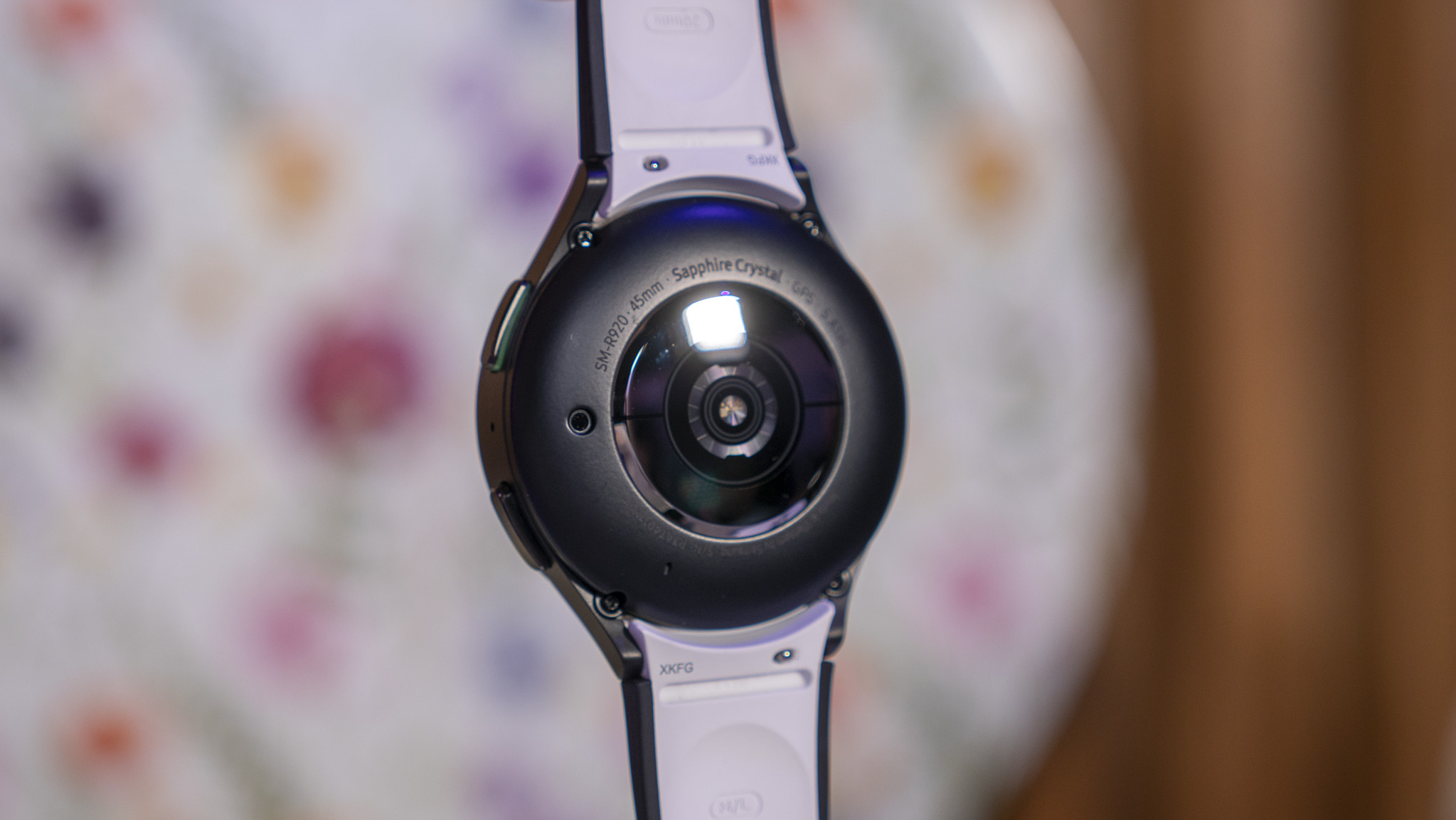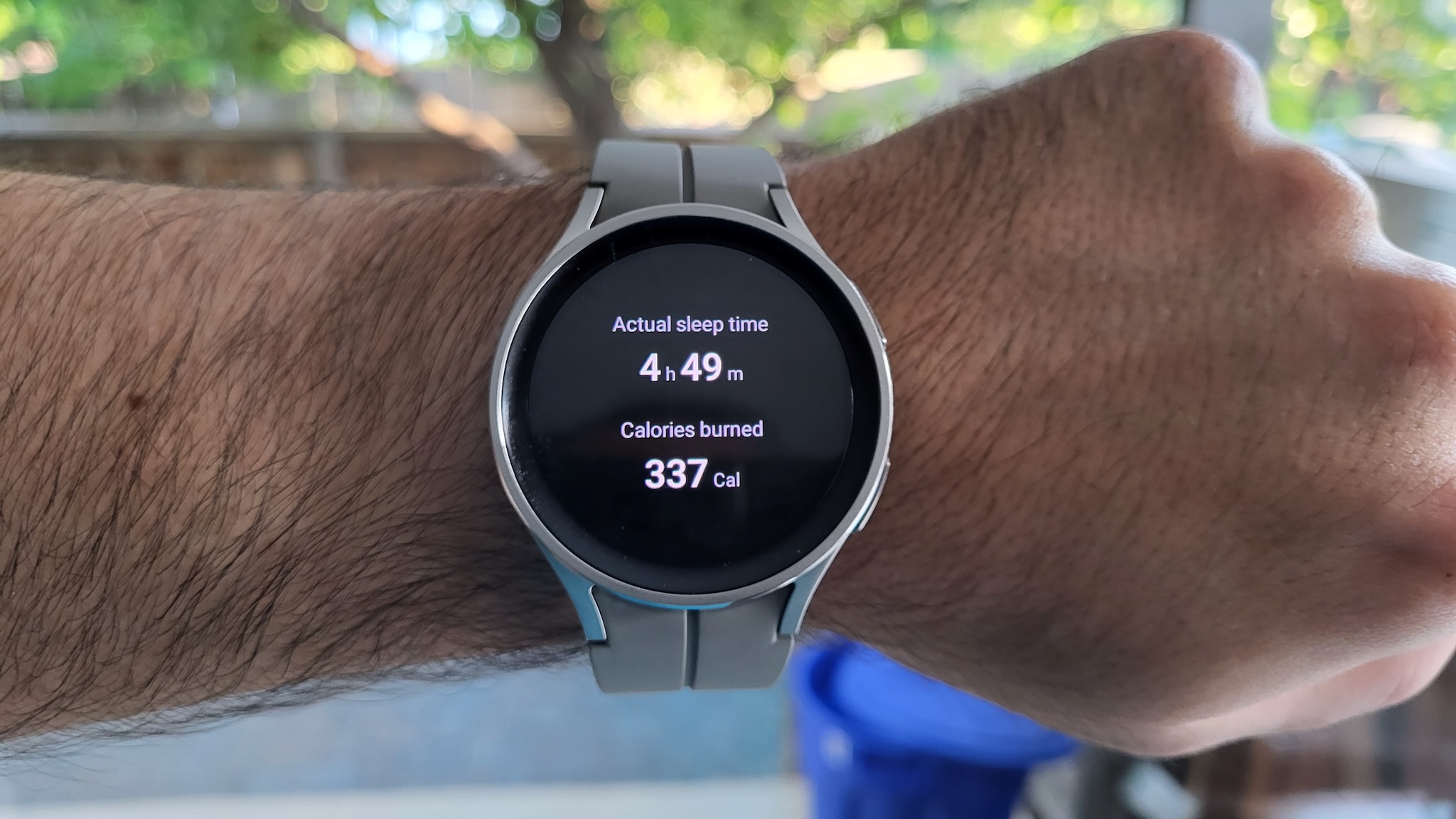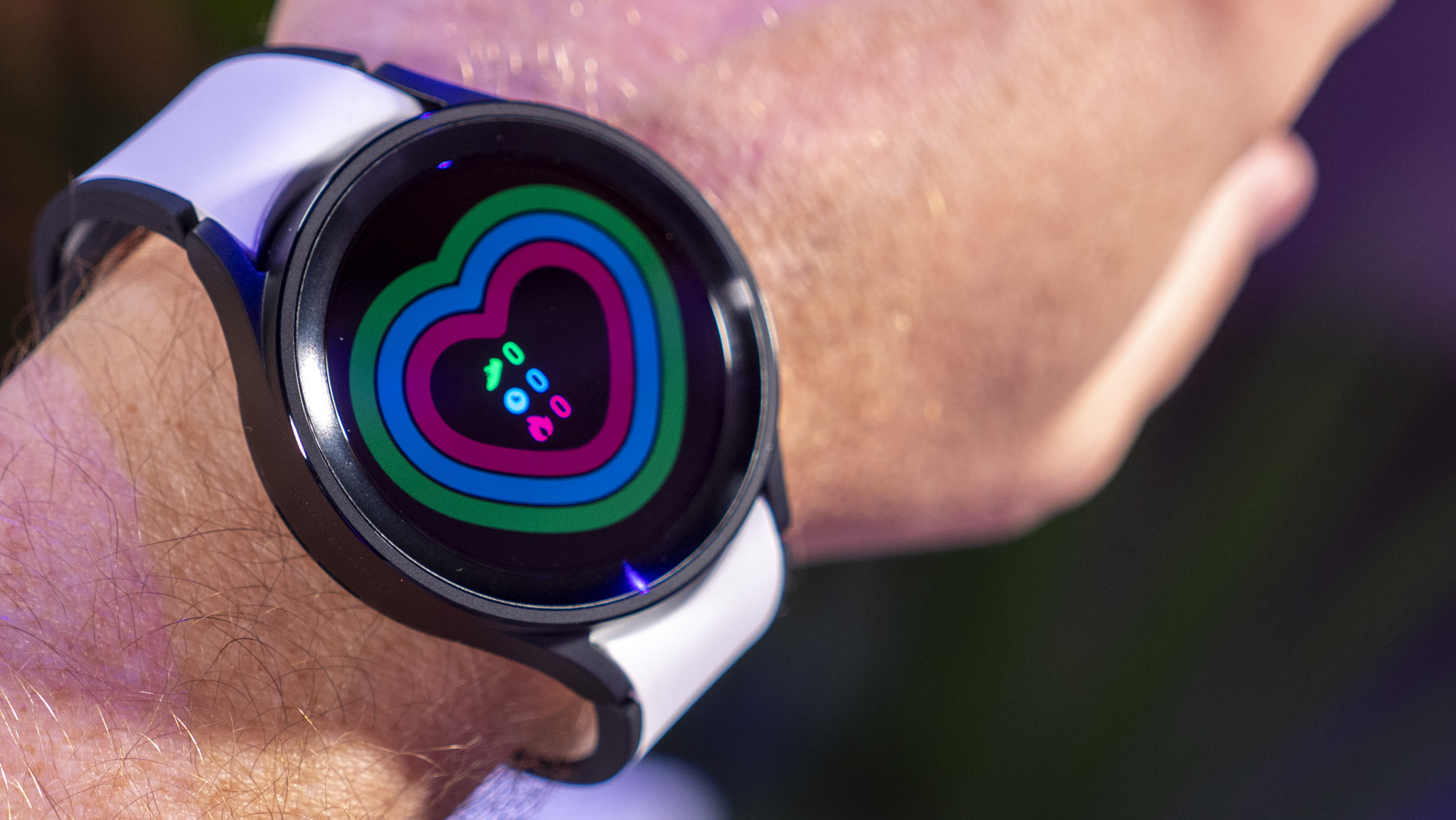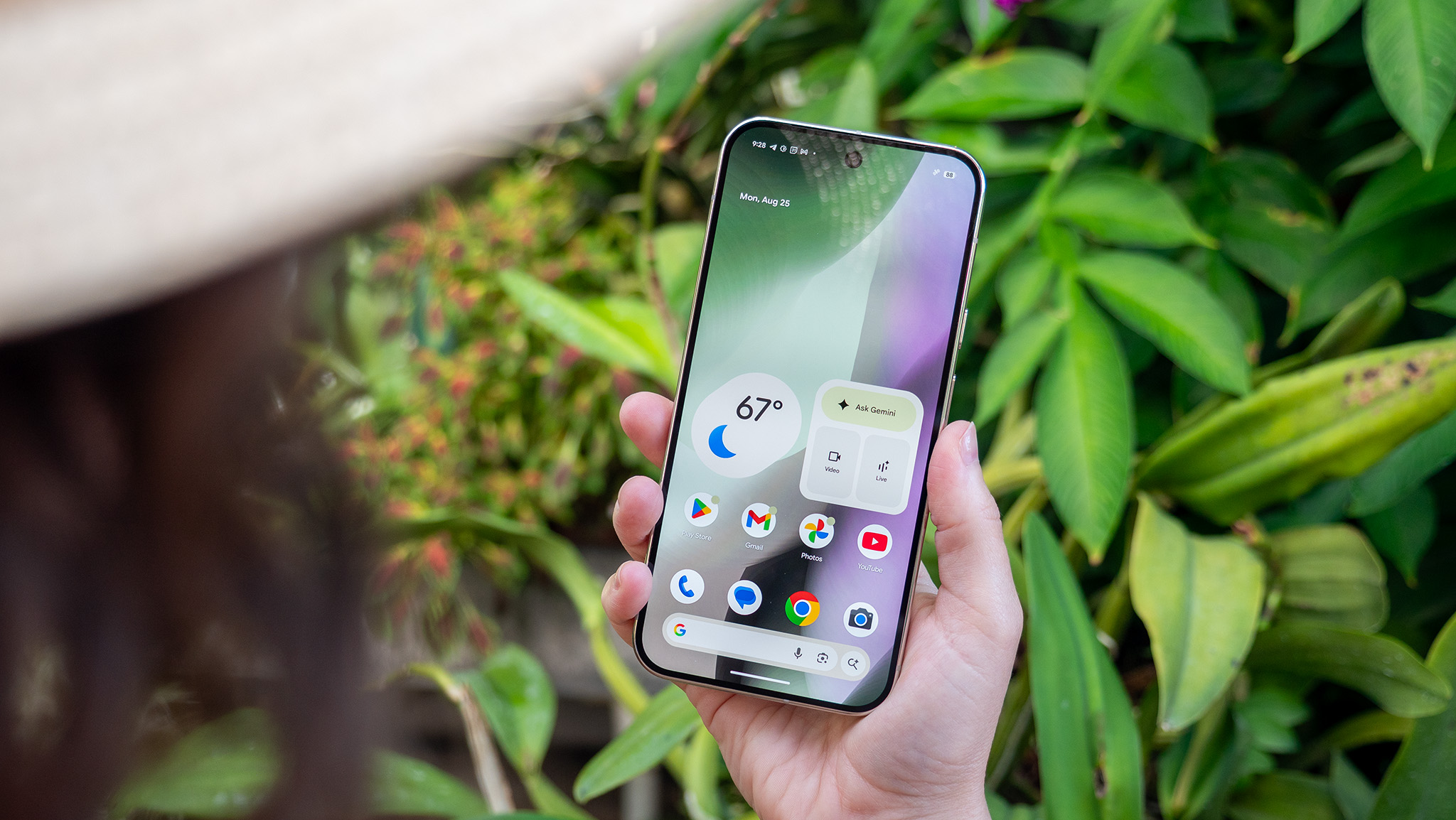Will people care about the Galaxy Watch 5's biggest upgrade?
Samsung's sleep tracking and Sleep Coach got a revamp, but who will wear the bulky Galaxy Watch 5 Pro to bed?

I've only owned the Galaxy Watch 5 Pro for a couple of days, and it's too early to give any definitive judgment on it. Aside from wanting to be rigorous and not miss anything, the watch's biggest change from the Galaxy Watch 4 — its new infrared (IR) temperature sensor for better sleep tracking — isn't something we'll be able to judge properly anytime soon.
Why? Because it's not active yet. Samsung specifically said the Galaxy Watch 5 temperature sensor will be available "in the near future" during Unpacked. It has other sleep-tracking upgrades, but back-end improvements don't have the same "wow" factor.
The Galaxy Watch 5 IR temperature sensor is one of its only exclusive upgrades, and it isn't ready yet.
We can assume the IR sensor will activate soon in some territories, but considering it took over half a year for ECG and blood pressure to come to Canadian Galaxy Watch 4 devices, it's fair for potential buyers to hesitate over its absence. Especially since the Galaxy Watch 5 series doesn't have many other exclusive features besides sleep tracking, and a battery upgrade that (so far) hasn't lived up to Samsung's estimates.
Last year's model was the undisputed best Android smartwatch by a mile, and the Galaxy Watch 5 and 5 Pro could have done much worse than improve on its design. But even if Samsung's revamped sleep tracking were fully available at launch, we could still reasonably question if enough people wear their smartwatches overnight to make sleep tracking a compelling feature that'll drive sales.
Sleep tracking isn't for everyone

It's difficult to say for certain how many people take advantage of sleep tracking. Statista says about 30% of its surveyed respondents in 2017 (aged 18-29) use it at least occasionally, followed by 22% (aged 30-45), and very few in older groups. More recent polls show a similar 30% stat without regard to age, typically surveyed from tech-savvy groups, with most of them using a wearable tracker.
What these studies don't ask is whether people wear a smartwatch or a fitness tracker to bed. I can only judge from my own perspective, which is that testing sleep tracking on a smartwatch is always my least favorite aspect of reviewing a device.
My wrist gets an musty odor when my skin has no chance to breathe overnight. Because newer watches like the Galaxy Watch 5 and Forerunner 255 have been redesigned to give the health sensors more direct contact on your wrist, they dig into my skin when I sleep on that side. If I wear the watch loosely for comfort, I get inaccurate SpO2 readings telling me I'm hypoxemic; wear it tightly, and the band tugs at my arm hair if I shift positions.
Get the latest news from Android Central, your trusted companion in the world of Android
I much prefer smartwatches during the day for their large displays. But if I needed daily sleep tracking, I'd buy a comfortable tracker like the Fitbit Charge 5 or Garmin Vivosmart 5 instead — or maybe an Oura Ring — something that can hug my wrist or finger without keeping me from drifting off.
For comparison, wearing the Galaxy Watch 5 Pro to bed is just uncomfortable unless I sleep on my side and prop my arm on a pillow. Perhaps the 40mm Galaxy Watch 5 would be better, but even a smaller watch can be a distraction that'll harm your sleep more than help it.
Is temperature a game-changer for sleep tracking?

The Galaxy Watch 4 really impressed with its array of health sensors, which could measure anything from ECG and body composition, to blood pressure and heart rate variability. Fitbit still has brand recognition as the health-tracking leader in the field, but the Fitbit Sense only has two sensors the GW4 lacks: EDA and temperature. Now the Galaxy Watch 5 will close that gap.
Samsung says its IR sensor will give users an "in-depth understanding of their wellness" that can differentiate between the room temperature rising and your body's heat. It didn't give much more information, but we can extrapolate from how other brands use temperature data.
The Galaxy Watch 5 might let you spot-check your body temperature to check for a fever, but it's more likely the sensor will run behind the scenes and give you a nightly summary showing if your body was too hot to properly recharge energy. It'll help give you a more accurate Sleep Score, a similar metric to Garmin's Body Battery or Fitbit's Daily Readiness score.
After a week of sleep tracking, you can use Sleep Coaching reports that summarize your sleep quality and give you a "customized month-long program" of challenges to get you in bed on time. In theory, the temperature sensor is the final ingredient to make the Galaxy Watch 5 especially worthwhile to users... Once it arrives.
The delay brings to mind the fact that when leakers first revealed the temperature sensor, analyst Ming-Chi Kuo speculated Samsung wouldn't include the sensor for the same reason Apple didn't add it into the Apple Watch Series 7:
"The challenge in implementing precise body temperature measurement is that skin temperature quickly varies depending on outside environments. A smartwatch can't support core temperature measurement in terms of hardware, so it needs an excellent algorithm to work together," Kuo explained. He concluded that "algorithm limitations" would hold Samsung back.
Kuo was wrong about its inclusion, but that doesn't mean the analyst erred on the difficulty of properly differentiating between body and external temperature. Samsung faced plenty of criticism about its 3-in-1 sensor accuracy with the Galaxy Watch 4, and it makes sense Samsung would slowly roll out this feature to avoid potential bad press — while including the sensor to beat Apple's Series 8 to the punch.
It could be a game-changer, but Samsung wants you to buy it without any proof that it works well enough to give you meaningful data. I certainly hope Samsung nails the algorithm by taking this extra time, but I can't give a recommendation on hope alone.
Should you sleep on buying the Galaxy Watch 5?

Several Android Central staffers have gotten their hands on the Galaxy Watch 5 series, and it's already proven a polarizing topic. Our wearables editor Andrew Myrick has already traded his Galaxy Watch 4 Classic for the 5 Pro; our smart home editor Chris Wedel says he won't be "fooled" into buying the new 5 because it "tiptoes" forward instead of making major changes.
The Galaxy Watch 5 is definitely missing a "killer feature."
I'm going to save my own Galaxy Watch 5 hot take until I have time to properly review it. But I'm someone who uses a smartwatch for fitness tools first and foremost, which is why I hoped Samsung would reclaim its "Active" label with this watch. And the Pro's giant-sized battery does help on this front, making it last across a long GPS-backed workout and sleep tracking, when an Apple Watch or another Wear OS watch would fall short.
Otherwise, the Galaxy Watch 5 is definitely missing a "killer feature" that makes it stand out compared to its predecessor, whether for fitness tracking or anything else.
I appreciate the more durable, scratch-proof materials and (allegedly) more accurate health sensor results, but these are passive upgrades you won't easily notice. Otherwise, it's the same Wear OS 3 software and Samsung Health features as before; without the temperature sensor, this generation may feel a bit underwhelming to Android fans.

Michael is Android Central's resident expert on wearables and fitness. Before joining Android Central, he freelanced for years at Techradar, Wareable, Windows Central, and Digital Trends. Channeling his love of running, he established himself as an expert on fitness watches, testing and reviewing models from Garmin, Fitbit, Samsung, Apple, COROS, Polar, Amazfit, Suunto, and more.
